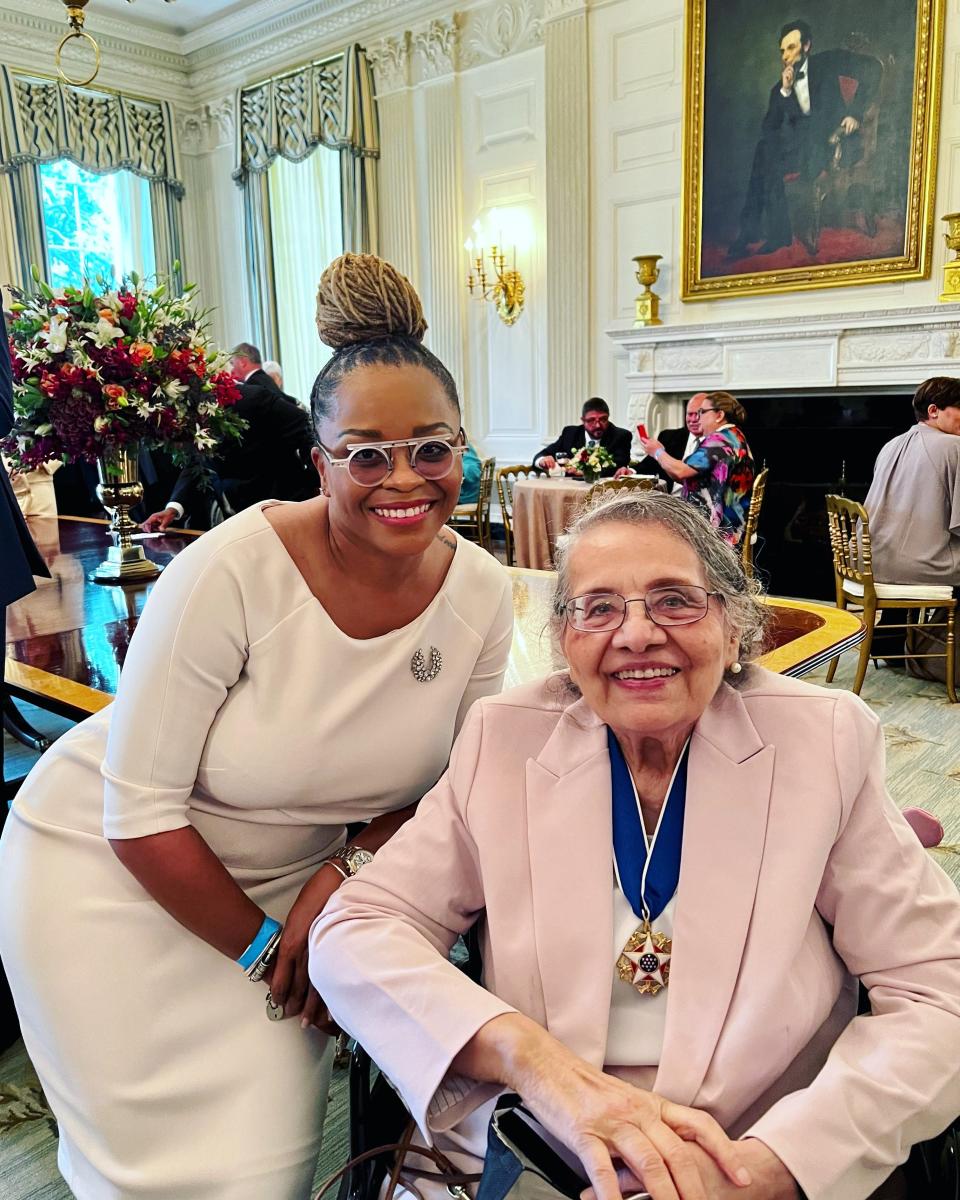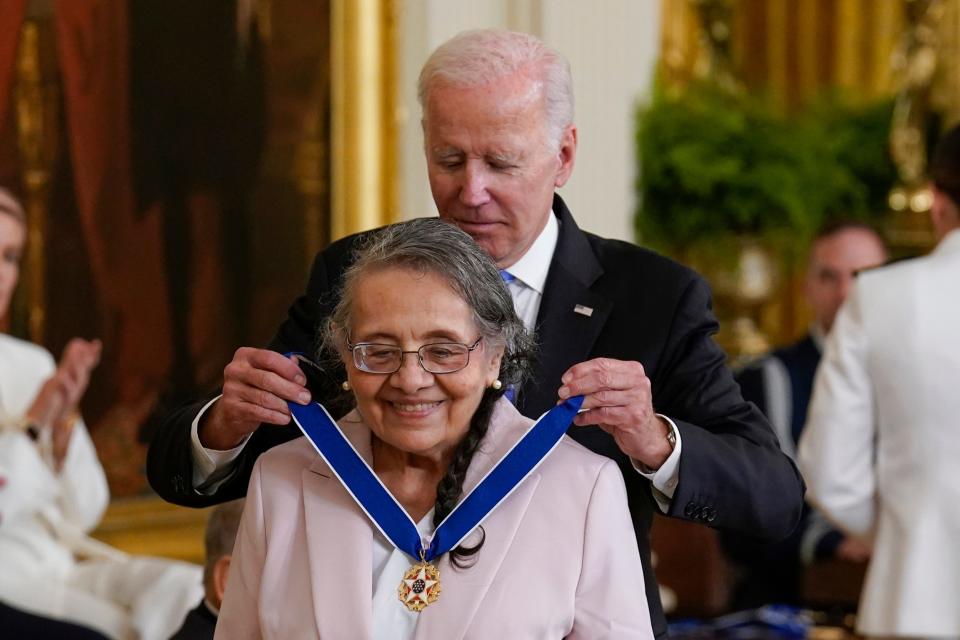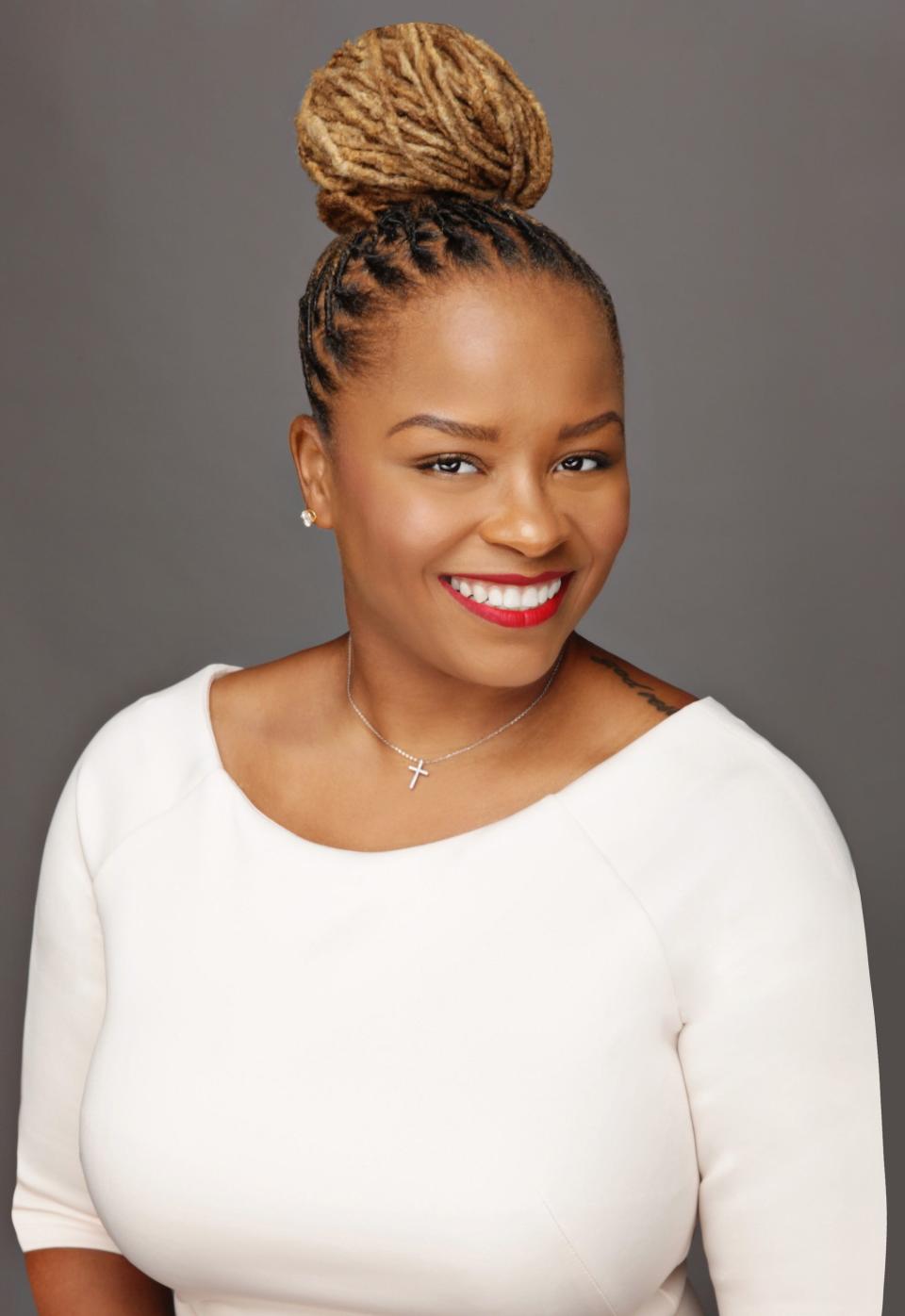Diane Nash merits the Presidential Medal of Freedom, but she deserves much more | Opinion
- Oops!Something went wrong.Please try again later.
Diane J. Nash arrived in Washington, D.C. in early July as a courageous one, but she stood before President Joseph R. Biden to receive the Presidential Medal of Freedom July 7 as thousands.
That’s how she wanted to be acknowledged: As one woman representing many women, men, and children, almost exclusively Black, who sacrificed so much to advance the cause of freedom.
She insisted the president share her proclamation of the occasion as an honor for the thousands who made the successes of the modern Civil Rights Movement possible.
That’s the way she is. Generous. Fearless. Principled. Immovable on what is right—no matter who is wrong. That is why she is the greatest freedom fighter I have ever known. And that is why every American should know her name.
After all, Nash freed the entire city of Nashville. Of course, some might take issue with my claim. But not Nash.
Hear more Tennessee Voices: Get the weekly opinion newsletter for insightful and thought provoking columns.
Nash was sadly unheralded in Nashville for too long
As chair of the Nashville Movement, a co-founder and direct-action chair of the Student Nonviolent Coordinating Committee (SNCC), and a mastermind of the 1961 Freedom Rides and 1965 Selma Voting Rights Movement, Nash stands tall in the pantheon of American history, and in the global struggle against racism and white supremacy.

Fifteen years ago, I had the honor of first meeting this quiet, fierce woman during the “Ride for Freedom,” a January 2007 bus ride from Nashville to Alabama, commemorating the 1961 Freedom Rides for which Attorney General Robert Kennedy asked John Seigenthaler, “Who the hell is Diane Nash?”
Back then, I was a graduate student at Vanderbilt University, and like her, I, too, am a proud product of the historic Fisk University.
More: Civil rights heroes Diane Nash and John Lewis deserve more recognition in Nashville | Plazas
As I sat in the East Room watching her receive the nation’s highest civilian honor, I couldn’t help but think that Nash’s award was long overdue.
Her Nashville Movement counterparts — Congressman John Lewis and the Rev. Cordy Tindell (C.T.) Vivian — were similarly recognized in 2011 and 2013, respectively.
Yet, even with David Halberstam’s 1995 book, "The Children," which lifted the 1959–1962 Nashville Movement from the margins of modern Civil Rights Movement historiography, Nash remained sadly unheralded in the city she labored to free from the shackles of segregation.
Sign up for Black Tennessee Voices newsletter: Read compelling columns by Black writers from across Tennessee.
Nash knew racism harms all people, whether Black or white
Nash, much like Fisk’s first student activists, the Original Fisk Jubilee Singers, forfeited her collegiate education, choosing instead to prod, push, and pull the American nation towards its promise of a more perfect union and Black freedom.

Facing the real possibility of violent, premature death, she learned the South its most enduring lesson: Those “stayed on freedom,” will “not be moved” from their pursuit of justice.
Still, Fisk, our alma mater, didn’t award her an honorary doctorate of humane letters until the May following our shared bus ride.
The move helped pave the way for the subsequent awarding of honorary degrees to 14 Tennessee State University (then Tennessee A&I State College) students in September 2008, who were expelled for participating in the 1961 Freedom Rides.
Expectantly, many think of racism’s terror — its nooses, burning crosses, bullets, guns, bombs, and police dogs, billy clubs, water hoses, vans, and jails — as exclusively damaging the Black bodies and souls they were willfully employed to intentionally harm.
However, in the spirit of her nonviolent mentor, the Rev. James Lawson, and mystic and theologian, the Rev. Dr. Howard Thurman, she believes that racism also harms the personality and humanity of its white actor-agents.
Sign up for Latino Tennessee Voices newsletter: Read compelling stories for and with the Latino community in Tennessee.
All citizens owe Nash a great debt for her courage
Nash is much further than I am or may ever be in embracing the limitless, transformative power of nonviolent love. She was not a mere practitioner of nonviolence; she is among the last of its great apostles.

Seated alongside me was her chosen heir apparent and fellow Fisk graduate, Justin Jones.
In front of us were her daughter-in-law and toddler granddaughter. In front of them was her kindergarten-bound grandson, who minutes earlier, enthusiastically told President Biden that he was his "favorite president ever."
Guest column by Justin Jones: Unbind Tennessee GOP leaders’ grip of white supremacy
He sat with his father, Douglass Bevel, who, in the spring of 1962, was the baby with which Nash was several months pregnant when she was sentenced to jail.
Now a married father and inventor, she then said of his future in a segregated America, “This will be a Black baby born in Mississippi, and thus wherever he is born, he will be in prison.”
Such courage is rarely found in any person or any place. And yet, we can find it here, in the life and lessons that Diane Nash has taught us and is teaching us still.
That is why all of Nashville, past, present, and future, are in her great debt.
Nash deserves to be honored by future generations
And that is why, for the life of me, I cannot understand why the people of Nashville especially, and all Tennesseans more broadly, have yet to demand that our city and state honor Diane Nash in a meaningful, monumental, and perpetual way.

Merely renaming the landing in front of the historic Metro Courthouse for her does not suffice. In the more than half-century since she first put her life on the line for the soul of this city, lawmakers and citizens alike should know that reducing Nash to her confrontation with Mayor Ben West still centers whiteness.
We must know better and do better — now.
At 84 years old, surely we must acknowledge that she cannot be with us forever.
So, I ask, respectfully, what is it that we are waiting for?
Crystal A. deGregory, Ph.D. is a research fellow at Middle Tennessee State University's Center for Historic Preservation. She is a graduate of Fisk, Tennessee State, and Vanderbilt universities.
This article originally appeared on Nashville Tennessean: Diane Nash deserves the Presidential Medal of Freedom and so much more

